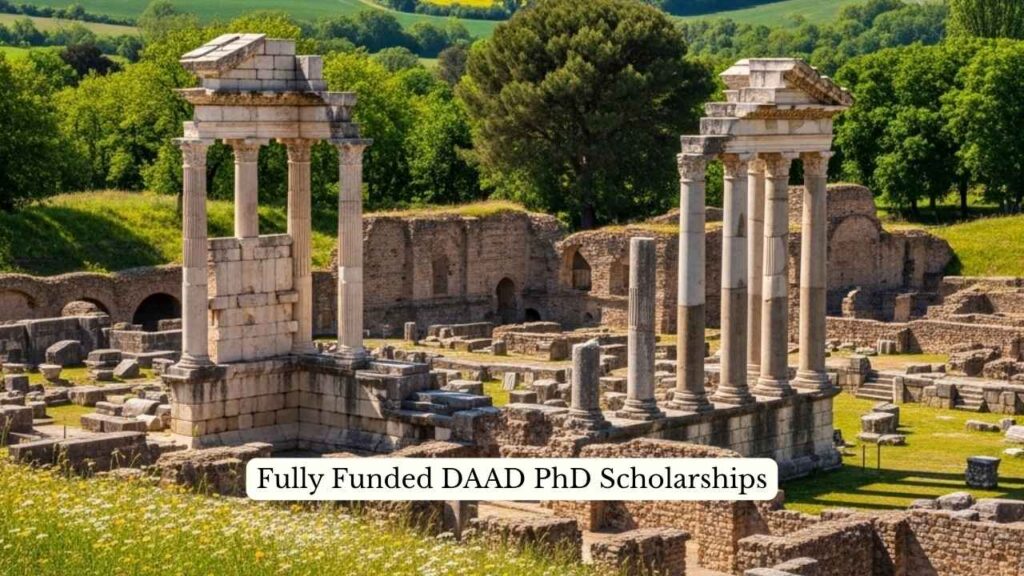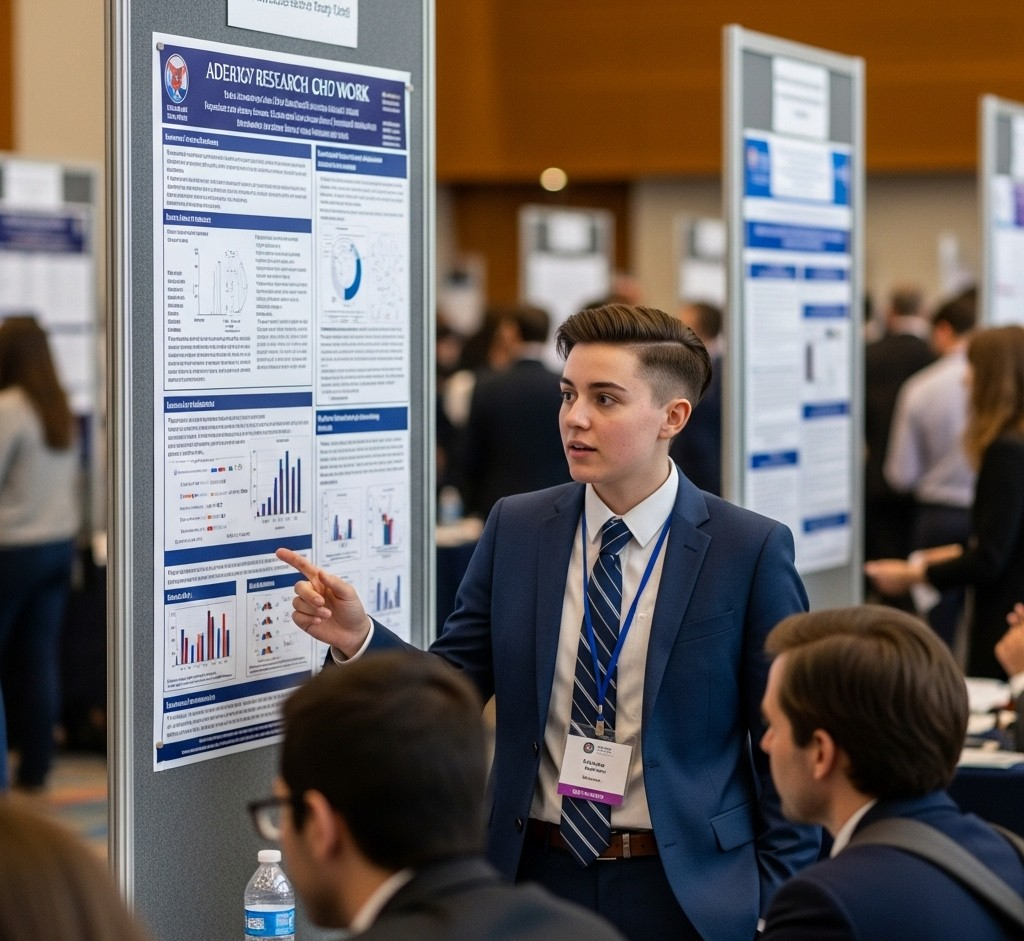Are you an aspiring scholar with a passion for uncovering the secrets embedded in ancient landscapes and their architectural legacies? Do you dream of dedicating the next four years to groundbreaking research, fully supported and in the academic heartland of Germany? Then the Fully Funded DAAD PhD Scholarships for the 2026-2030 batch in Landscape Archaeology & Architecture might be the extraordinary opportunity you’ve been waiting for. This isn’t just a scholarship; it’s a gateway to an unparalleled academic journey, allowing you to delve deep into interdisciplinary research without the burden of financial stress.

As someone who has advised many promising students on their path to advanced degrees, I know firsthand the transformative power of a fully funded scholarship. It frees you to focus entirely on your intellectual pursuits, network with leading experts, and truly make your mark on the field. Germany, with its rich academic tradition and commitment to cutting-edge research, offers an ideal environment for this specialized and fascinating area of study.
Why Germany for Your PhD in Landscape Archaeology & Architecture?
Germany stands as a beacon for academic excellence, particularly in fields that bridge the humanities and sciences. Its universities are renowned for their rigorous research, innovative methodologies, and collaborative environments. For disciplines like Landscape Archaeology and Architecture, which inherently demand an interdisciplinary approach, Germany offers a unique ecosystem where history, geography, environmental science, and architectural studies converge.
DAAD PhD Scholarships
| Key Fact | Detail/Statistic |
| Funding Duration | Up to four years, subject to satisfactory annual progress review. Funding typically begins October 1, 2026.DAAD Official Website |
| Monthly Stipend | €1,300 per month for doctoral candidates. |
| Additional Benefits | Travel allowance, payments towards health, accident, and liability insurance cover, allowances for study and research, and, where applicable, rent and family allowances. |
| Application Deadline (Specific Program Example) | October 15, 2025 (for the “Landscape Archaeology and Architecture” doctoral program at Freie Universität Berlin, 2026-2030 batch). Note: Deadlines vary by program and university. Freie Universität Berlin via DAAD |
The Fully Funded DAAD PhD Scholarships for the 2026-2030 batch in Landscape Archaeology & Architecture offer an unparalleled opportunity for passionate and qualified individuals to pursue their doctoral dreams in Germany. This is more than just financial aid; it’s an investment in your intellectual growth, a chance to contribute to a vital field, and an immersion into a world-class academic system.
Eligibility: Are You the Right Candidate?
To be considered for these prestigious DAAD PhD scholarships, particularly within a specialized field like Landscape Archaeology & Architecture, certain criteria must be met. These typically include:
- Nationality: Generally, these scholarships are open to applicants who are not German citizens.
- Academic Excellence: You must hold an excellent Master’s degree (MA, MSt, or MSc) in a relevant discipline, such as Prehistoric Archaeology, Classical Archaeology, Near Eastern Archaeology, Egyptology, or Northeast African Archaeology with a focus on Landscape Archaeology. For the 2026-2030 batch, your Master’s degree should generally not have been completed before March 1, 2020. Importantly, your thesis must be submitted and graded by the application deadline.
- Research Alignment: Your proposed doctoral project should fit within the broad framework of Landscape Archaeology and Architecture. This might include research on the intertwining of landscape and economy, cultural anthropology and social archaeology, or the application of geostatistical and multivariate methods.
- Language Proficiency: While many programs are taught in English, a high level of English proficiency is typically required (e.g., IELTS Academic or TOEFL at a B2 level or higher). Some universities may require a C1 certificate for doctoral admission. For programs taught in German, you’ll need a German language certificate.

Navigating the Application Process: Your Step-by-Step Guide
The application process for a DAAD PhD scholarship, especially for a specialized field, is comprehensive but entirely navigable with careful planning. Here’s what you can expect:
1. Finding Your Perfect Fit: University and Supervisor
This is perhaps the most crucial initial step. For an individual doctorate, which is common in Germany, you’ll need to find a professor (Doktorvater or Doktormutter) who is willing to supervise your research project. This often involves:
- Researching Universities: Explore German universities with strong departments in Archaeology, Ancient Studies, or Architecture that have faculty working on landscape-related themes. Universities like Freie Universität Berlin (with its Berlin Graduate School of Ancient Studies) are known for programs in Landscape Archaeology & Architecture. Other notable institutions for archaeology in Germany include Heidelberg University, University of Tübingen, and Goethe University Frankfurt.
- Identifying Potential Supervisors: Look at faculty profiles, their publications, and current research projects to identify professors whose expertise aligns with your research interests.
- Crafting a Research Proposal: Develop a compelling and well-structured research proposal (often referred to as a “research exposé”) that outlines your project’s objectives, methodology, and expected outcomes. This should be a detailed description, typically up to 10 pages, formulated by you and discussed with your prospective academic advisor.
- Securing a Supervision Confirmation: Once a professor agrees to supervise you, you’ll need a formal letter confirming their willingness to do so.
2. Assembling Your Application Documents
The DAAD portal requires a specific set of documents for your application to be considered complete. These typically include:
- Signed DAAD Application Form: Available on the DAAD portal.
- Curriculum Vitae (CV): A comprehensive, tabular CV (max. 3 pages), ideally using the Europass format.
- Motivation Letter: This is your chance to shine! A compelling 1-2 page letter explaining your academic and personal reasons for pursuing the PhD in Germany, your professional goals, and how this particular project and scholarship will help you achieve them. As an expert, I can tell you that a strong motivation letter is often the deciding factor. It’s where you articulate your passion and fit for the program and the scholarship.
- Research Proposal/Exposé: As detailed above, a well-defined description of your doctoral research.
- Academic Certificates and Transcripts: Copies of all your academic degrees (Bachelor’s and Master’s) with grades, including an explanation of your university’s grading system.
- Language Proficiency Proof: IELTS or TOEFL for English, or a German language certificate if applicable.
- Letters of Reference: Usually two letters from university professors, one of which should be from a professor at your home university. These are often confidential and sent directly by the professors to the university or scholarship body.
- Schedule for Planned Research Work: Agreed upon with your academic supervisor.
- Declaration on Safety and Ethical Aspects: From your German supervisor.
- Admission Letter (if available): If you haven’t received admission to a German university at the time of application, you must submit this before the funding period begins.

3. Submitting Your Application
Applications are primarily submitted via the DAAD portal. It’s crucial to submit all required documents by the deadline. For the Freie Universität Berlin program, the deadline for the 2026-2030 batch is October 15, 2025. Always check the specific deadline for your chosen program, as these can vary.
4. The Selection Process
The selection process typically involves an assessment of your academic performance, the quality and relevance of your research proposal, your motivation, and your language skills. Shortlisted candidates may be contacted for interviews.
Maximizing Your Chances: Tips for a Standout Application
- Start Early: The application process is lengthy and requires significant preparation, especially in developing a strong research proposal and securing a supervisor.
- Tailor Your Application: Customize your motivation letter and research proposal to align precisely with the specific program and supervisor’s interests. Generic applications rarely succeed.
- Network: Reach out to professors whose work interests you well in advance. Attend webinars or online events related to your field in Germany.
- Refine Your Research Proposal: This is the cornerstone of your application. Ensure it is original, well-structured, academically sound, and clearly articulates your contribution to the field. Seek feedback from mentors.
- Ace Your Language Tests: High scores in IELTS or TOEFL (or German equivalents) demonstrate your readiness for an international academic environment.
- Strong References: Choose referees who know your academic abilities well and can speak to your potential for doctoral research.
Master Your Motivation Letter for German Scholarships and Admissions: Your Blueprint for Success
Your Guide to the Old Dominion University Scholarship 2025 for Foreign Applicants
FAQ
Q1:Is a German language certificate mandatory for all DAAD PhD scholarships in Germany?
No, not all DAAD PhD scholarships require a German language certificate. Many programs, especially specialized ones like Landscape Archaeology & Architecture, are offered in English. However, for these programs, you will need to demonstrate strong English language proficiency (e.g., via IELTS or TOEFL). If your chosen program is taught in German, then a German language certificate (like TestDaF or DSH) will be necessary.
Q2:Can I apply for a DAAD scholarship if I haven’t yet completed my Master’s degree?
You can often apply if you are very close to completing your Master’s degree. For the specific “Landscape Archaeology and Architecture” program for 2026-2030, your Master’s thesis must have been submitted and already graded at the time of application. Generally, you would need to submit your final degree certificate before the scholarship funding period begins.
Q3:What is the typical duration of a DAAD PhD scholarship?
DAAD PhD scholarships typically provide funding for a maximum of four years. The initial grant is often for three years, with a possibility of extension for a fourth year, subject to a satisfactory annual progress review of your academic achievements.
Q4:Do I need to find a supervisor before applying for the DAAD PhD scholarship?
Yes, for individual doctoral projects, securing a letter of supervision confirmation from a German university professor is a crucial step before applying for the DAAD scholarship. This letter demonstrates that you have a concrete research plan and an academic host. For structured doctoral programs, you may need to show proof of existing contacts to the program coordinator.










